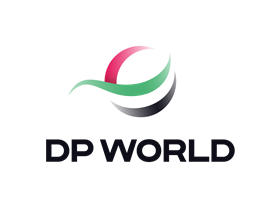Transforming automotive supply chains by navigating complexities
Beat Simon, group chief commercial officer for logistics at DP World, looks at some of the big changes currently affecting the global automotive supply chain and the strategies logistics providers need to put in place to support customers through the transformation.
PARTNER CONTENT
This content was produced in partnership with DP World

In the continually transforming world of automotive logistics, adaptability is the key to success. The industry is facing major changes because of changes in consumer preferences, including demand for electric vehicles (EVs), as well as geopolitical shifts that make companies rethink their supply chain strategies. However, the practical challenges of ro-ro capacity shortages across Europe through to North America are increasing the use of cars-in-container solutions. These changing situations require flexibility, resilience and the adoption of new ways for the automotive supply chain to continue to flourish.
Evolving EV battery supply chains
As the demand for EVs surges, the complexities of EV battery supply and recycling have become increasingly apparent. From actively sourcing metals and raw materials such as cobalt and manganese across the African region, to nickel and lithium to manufacturing and delivering batteries, the EV supply chain presents multifaceted challenges. Recycling batteries is equally complex, involving considerations of cost, environmental hazards and technical difficulties.
At DP World, we recognise the vital role of supply chains in addressing these challenges. Building recycling channels and routes, creating warehouses for dangerous goods and ensuring timely delivery of used batteries can reduce costs and risks associated with storage and movement. As demand and use of electric vehicles increases in the near future, supply chains will need to adapt to new market demands, changing geopolitical scenarios and, most importantly, new global trade routes will need to be created based on emerging manufacturing and consumer hubs.
Though our strategically located warehouses in Central Europe and our expertise in handling dangerous goods, we offer tailored services for the EV battery supply chain, including specially approved warehouses for lithium-ion (Li-ion) batteries, with truck loading and unloading, inbound, storage, order picking and outbound. Our network of 350,000+ pallet spaces, 20 dedicated dangerous goods warehouses in over 14 locations and 30+ certifications ensure the efficiency and effectiveness of the battery supply chain.

Shifting supply chain strategies
Reflecting on some of the reasons for these fluctuating dynamics, the influence and learnings from Covid can still be felt. While protectionism dominates in some parts of the world, nearshoring and diversifying production to match vehicle demand is becoming increasingly vital. According to the latest research by Economist Impact, supported by DP World, 42% of automotive companies are opting for a friendshoring approach to shape trade and supply chain operations in response to current geopolitical events, while a third are expanding into neutral markets to mitigate heightened risks. Additionally, 27% of companies are developing parallel supply chains or dual sourcing and another 27% are relocating each production step in the supply chain closer geographically to lower exposure to geopolitical events. Businesses are balancing the benefits of consolidation with diversification and control with resilience.
The automotive industry has been one of the most proactive when it comes to shortening the length of their supply chains. Turkey has been selected by companies like Volkswagen as a focus for its production because of its strong economic conditions. Similarly, Mexico is gaining from manufacturing plants that will be established by BMW and Tesla. These changes have resulted in closer linkages between the Global North and Global South as countries to manage geopolitical challenges.
Supply chains are flexible and have adjusted to the new production and growing customer markets for automotive, setting a precedent for other sectors that are going through comparable changes in strategy.
Bridging tradition with innovation
The automotive industry has continually faced practical and infrastructure challenges, requiring innovative solutions to ensure efficient and sustainable transport. DP World stands at the forefront of addressing these challenges, offering unique solutions that set us apart from competitors and contribute to a more resilient supply chain.
“The electric vehicle supply chain presents multifaceted challenges. Recycling batteries is equally complex, involving considerations of cost, environmental hazards and technical difficulties”
One such challenge is the lack of ro-ro vessel space for the past few years, leading to delays and disruptions in automotive delivery. In response, DP World has pioneered the use of ‘cars in a container’ as a secure and efficient method of transport. While this approach is gaining popularity across ports, DP World takes it one step further by utilising a specially designed racking system that allows for the stacking of three SUVs into each container, maximising space utilisation and minimising transportation costs.
Additionally, DP World offers comprehensive finished car logistics spanning across 16 owned ro-ro terminals, multimodal transport, cars in a container, storage and warehousing and value-added services. This comprehensive suite of services ensures end-to-end solutions for our clients, providing them with unmatched flexibility and efficiency in automotive logistics.
These innovative approaches set us apart and also help to ensure that we build more adaptable and sustainable supply chains for our customers. Our use of technology and expertise are key components creating a better impact in the automotive industry and influencing the future of transportation.
Recent events such as the Francis Scott Key bridge collapse in the Port of Baltimore serve as stark reminders of the industry’s vulnerability to unforeseen disruptions. While DP World remains focused on providing reliable and agile solutions, these incidents underscore the importance of continued innovation and adaptability in automotive logistics.





